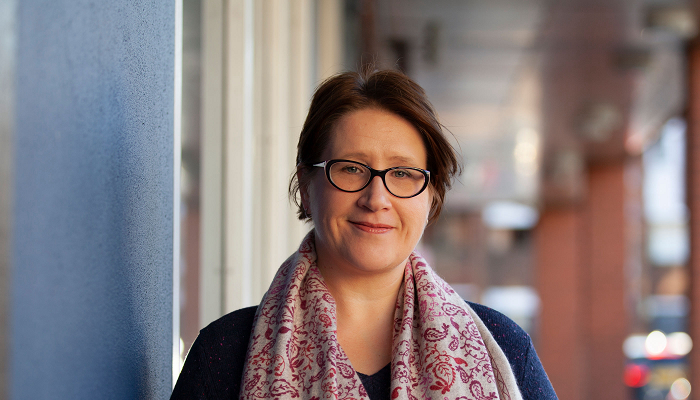The issue of regulation within the employee assistance programme (EAP) industry has always been a contentious topic.
Proponents of more regulation insist that it will provide a consistent level of quality, confidentiality, and privacy for employees that use EAP services, and that it will increase the accountability of EAP providers.
Those that argue against increased regulation in the sector maintain that rigid directives will increase administrative costs that will reduce the availability and scope of EAP services and will lead to a one size fits all approach which will be ineffective for patients with more specific cases.
What does EAP regulation in the UK look like in practice?
The fact is that EAPs in the UK are very lightly regulated.
UK EAP providers are typically Employee Assistance Programme Association (EAPA) accredited, and a member of the British Association for Counselling and Psychotherapy (BACP), but ongoing audits of practices and reviews of codes of conduct don’t exist within the UK market.
There is a continual pressure on EAPs to support clients with increasingly complex needs, in an environment where we are seeing a reduction of services in the NHS.
But it is crucial to note that EAPs can deliver value for their customers, without sacrificing their quality of services, relationships and clinical outcomes.
Unfortunately, the escalating financial pressures that EAP providers face, such as increased service usage, shrinking margins, increasing operational costs and reduced corporate budgets have led some UK EAP providers, especially low-cost providers, to cut corners and engage in a race to the bottom.
This has resulted in allegations of highly inappropriate working practices such as:
- Breaching confidentiality, privacy and data protection laws
- Hiring unqualified, unlicensed clinicians to provide the necessary mental health services
- Drafting in non-clinical staff to answer helpline calls from vulnerable patients
- Requiring counsellors to keep referral rates below a certain threshold
- Failing to provide adequate training and supervision for counsellors
Unfortunately, the level of regulation in the UK EAP industry hasn’t acted as a strong enough safeguard to prevent such alleged abuses, which are potentially more likely to occur if EAPs are commercially driven and not clinically driven.
Realistically, being accredited by the BACP and EAPA is a hygiene factor for EAP providers, not a differentiator, and high standards of quality must be applied, driven, and championed by EAP providers themselves.
Steps to improve service quality
So, what steps can UK EAP providers take to ensure a quality, clinically-led, outcomes-focused service?
- Hold mental health services to a higher standard, similar to primary care services
Given counsellor-led mental health services aren’t formally regulated, there can be significant differences in the definition of quality and how it is measured. However, a significant step forward for EAP providers would be to regulate their mental health services to the same conceptual frameworks that we see in the primary care sector, so that providers uphold a higher standard across their GP and EAP services, for example ongoing monitoring, audits, feedback mechanisms and action plans to address identified issues. This includes all aspects of mental health assessments, single session counselling, and structured therapy sessions to ensure the highest levels of client safety and clinical outcomes.
- Be clinically led, not commercially led
Prioritising the mental health and wellbeing of patients should be the constant theme that drives all operational decision making. EAP providers should never assign fixed targets, budgets or quotas for referrals to bring any commercial influence on either the referral rate or number of structured therapy sessions per case. All clinical referrals from assessment into structured therapy should be purely clinical decisions. Every patient who calls an EAP helpline or books an EAP triage needs to be guaranteed a proper assessment with a qualified clinical counsellor – this should be a cornerstone at the core of an EAP offering.
Providers should have a strong policy to safeguard all their clients and customers. All mental health clinicians and designated staff should be required to complete internal safeguarding training. Ultimately, the safety and confidentiality of service users should be the priority. To ensure this, providers must obtain consent from the service users for processing data and ensure full GDPR compliance.
- Invest in your counsellors and clinicians’ skills and wellbeing
Clinicians’ wellbeing should receive the same high standards of consideration and support as service users. The highest clinical and quality standards should be reflected in stringent vetting procedures and codes of conduct for all clinicians including counsellors, as well as ongoing monitoring, audits, and the provision of guidance and training. Employed clinicians should be provided with an extensive and effective induction process to ensure that they are familiar with clinical protocols and practices and be required to undergo regular professional development to keep their skills in line with the most up to date evidence-based practice.
Counsellors should be managed and supported by experienced senior clinicians who have the independence and authority to change the priority of their workload with support from duty senior clinicians and quality officers where risk calls are encountered i.e. where there is the need for a case review or a break from delivering support in circumstances where a case creates unusual emotional impact.
Providers must drive care quality
In summary, the lack of regulation in the UK EAP sector, in particular for mental health services, has led to alleged unethical practices and breaches of privacy that may have resulted in vulnerable patients not receiving the quality of care that they deserve.
Being accredited by the relevant associations is only a starting point, and the onus should be on EAP providers to drive overall quality of care.
An EAP providers’ offering must be built on core principles of integrity, respect, confidentiality and a commitment to excellence to ensure that their services are clinically led and professional, with a focus on positive outcomes for patients, clinicians and employees alike.
